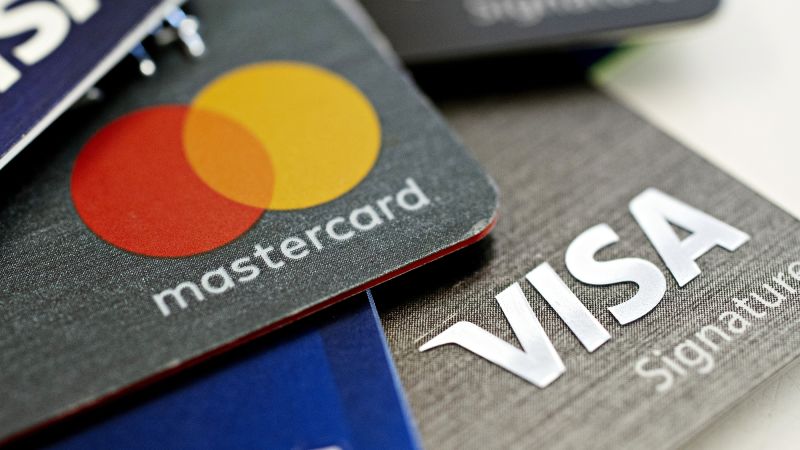Two of the world’s largest credit card networks, Visa and Mastercard, as well as the banks that issue cards with them, have agreed to settle a decadeslong antitrust case brought upon by merchants.
The settlement is set to lower swipe fees merchants pay when customers make purchases using their Visa or Mastercard by $30 billion over five years, according to a press release announcing the settlement Tuesday morning.
The settlement, which only applies to US merchants, is the result of a lawsuit filed in 2005. However, nothing is considered finalized until it receives approval from the US District Court for the Eastern District of New York. Even then, the case can also be appealed in what could be a lengthy battle.
Typically, swipe fees cost merchants 2% of the total transaction a customer makes — but can be as much as 4% for some premium rewards cards, according to the National Retail Federation. The settlement would lower those fees by at least 0.04 percentage point for a minimum of three years.
.04% lowered when it’s 2% too high? Is that a joke?
and for a minimum of three years, which means after three years they’re going to be increasing rates to compensate for “lost profits”.
I’m sure retailers will pass those savings on to the consumer. Right?
…right?
I’m very excited to see an even more complex and Byzantine fee structure that o have to navigate in store. Super fun. Super cool.
As a retailer owner, no. Not because I’m a glutton for profit, but because the current fees were one of a few hurdles to being profitable at all and being able to pay employees more.
So, for me, everyone is getting raises (does not include myself, I don’t take any pay or compensation).
This probably means some credit card bonuses will lower. They have been getting really high the last 2-3 years.
For the 99.9% of people who haven’t run accounting books for a company, those credit card bonuses are actually (90%-100%} paid for by the merchant.
The merchant can’t exclude “premium” rewards cards, so selling the same thing to two different people can cost the retailer as much as a 4% difference depending on what card is used.
When prices have to end in .49 or .99, it won’t be a price drop.
But it will let the store go a little bit longer before having to raise any prices for inflation. Or give the store money to use to fix something that has been too expensive to fix before. Or keep the store in business a little longer.
He is being facetious. Prices never drop. Numbers must always go up in a capitalistic society.
So frustrating that this has taken 19-20 years to get through the courts, before the appeals.
That’s enough time to conceive and raise a liberal voter who votes against big business and wants to destroy monopolies.




